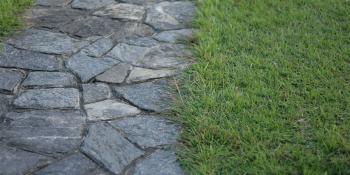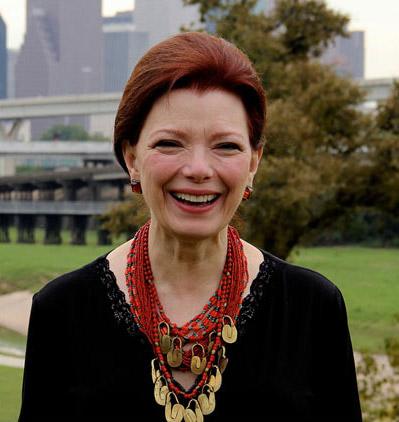
A better, truer story
Neighborhood Centers' CEO talks about community development and helping homeowners make their own path.
For more than 100 years, Neighborhood Centers Inc. in Houston, Texas, has served the city’s poorest communities, with the belief that opportunities for education, health and work are transformative.
Today, the community development organization is the largest charitable organization in Texas and serves more than 500,000 people a year. It also is a leader in a burgeoning way of working — focusing on a neighborhood’s strengths, not its problems.
Neighborhood Centers Inc. president and CEO Angela Blanchard talks about why this approach is so effective and her organization’s efforts to help Virginia’s Habitat for Humanity of Charlottesville incorporate it.

Q: You talk about the importance of telling “a new story.” What do you mean by that?
A: Here is the story we are used to: This is a neighborhood with lots of problems, and it’s a big mess.
There is a whole other story. In every community, in every neighborhood, there are people who are fired up, who still believe that through their own efforts, they can make their lives better, and they have particular ideas about what that means. It may be education for their kids or completing a training program. Those are the people we want to invest in. We have to first understand what gets them out of bed in the morning, no matter what.
This is not some Pollyanna view that dismisses the gruesome nature of poverty or social injustices. It is a different starting point.
Q: Why is that a better, truer story?
A: If you put people in charge of their own lives, that moves them along their path. You can’t want things for people more than they want them for themselves. People will care for that which they create. Habitat knows this.
“If you put people in charge of their own lives, that moves them along their path. Habitat knows this.”— Angela Blanchard
Q: How do you view the role of Neighborhood Centers Inc.?
A: In keeping with both how we were founded and what we know, working with neighborhoods works best. We are involved in 70 locations. We have a flagship community center that is about 80,000 square feet that is the whole ball of wax — a clinic, a welcome center for immigrants, a credit union, a school, a garden, a tax center.
We have a mobile community center on wheels that we can load up with tax and immigration services, even language classes, that we can take to some of our region’s more far-flung neighborhoods.
Or we might have two small rooms that we have leased in someone else’s facility. What we have found is that when we walk beside people, not behind them or in front of them, we understand best what they are trying to accomplish. That drives what we do.
Q: Are you talking about empowerment?
A: I have never used that word because I don’t understand it. I have power; you have power. What we do is look for and understand what motivates people and then share with them information to help them get something done. That’s why I am so excited about working with Habitat Charlottesville. At its core, it has a set of beliefs about people, that they have something to offer.
Q: How does your upbringing inform your work?
A: My parents, neither of whom came from nurturing families or had any money, fell in love, got married and had eight kids before they were 30. All they had was a dream and a belief and a fierce determination that they could get out of poverty. My father worked for a printer who sometimes paid him and sometimes didn’t. He and my mother bought a printing press and moved it into one of our three bedrooms. He went to his day job, then he and my mother printed all night long. There are people like them in every community. I look for them.
Q: What you are talking about sounds so simple. Is it?
A: It is not simple. We have all been trained the other way — study the problem, diagnose the problem, fix the problem. We have a belief about poor people in this country that if we can’t fix them, then it must be their fault. We are swimming against a current of thinking that has been around a really long time.
Q: Why does all of this even matter?
A: If you believe, as I do, that our futures are inextricably linked, that how we fare is connected to how well our neighbors do, this way of appreciating and understanding one another will help people realize their potential and help alleviate suffering. That is the whole point.